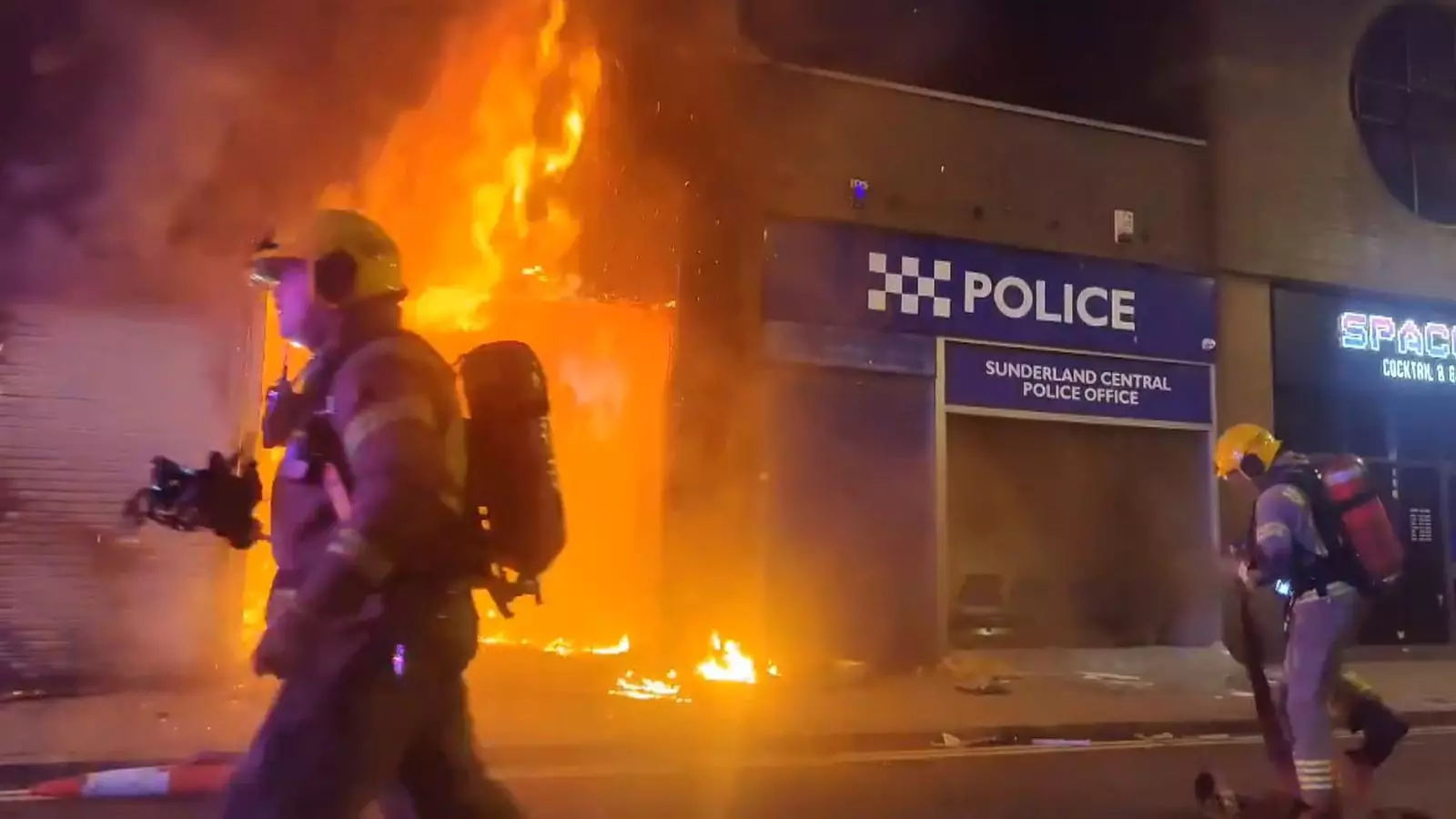With almost 30 protests planned for the upcoming weekend following the tragic Southport stabbings, tensions are running high across the UK. These protests, many organized by far-right activists, have already resulted in violent demonstrations outside Downing Street and in Sunderland, leading to multiple arrests and instances of vandalism. The spread of these events is fueled by social media, with posts promoting more protests in various cities popping up, including one targeting a mosque. Counterprotests are also being organized in response to the far-right demonstrations, indicating a deep divide in society.
A total of 24 protests are set to take place today, with 23 organized by far-right activists and one labeled as an “anti-racist” counterprotest. An additional four far-right protests and a “peaceful vigil” are scheduled for tomorrow. The events have been characterized by advocacy group Hope Not Hate as being driven by anti-multiculturalism, anti-Muslim, and anti-government sentiments, with a broad agenda and no single organizer. This lack of centralized leadership raises concerns about the spread of hate and misinformation among vulnerable populations.
To prevent further violence, British police chiefs have agreed to deploy large numbers of officers over the weekend and have extra prosecutors on standby to charge individuals inciting disorder. This surge in law enforcement resources aims to deter potential troublemakers and ensure swift justice for those involved in criminal activities. In response to the growing unrest, Prime Minister Sir Keir Starmer announced a new “national” response to the disorder by better coordinating police forces across the country. Mosques are also on high alert, according to the Muslim Council of Britain, in anticipation of any potential threats.
In Sunderland, a stand-off between police and protesters outside a mosque escalated to violent confrontations, leading to arrests for offenses such as violent disorder and burglary. Police officers were injured during the clashes, highlighting the dangers posed by these escalating tensions. MP Lewis Atkinson mentioned a potential link between the disorder and the English Defence League (EDL), founded by far-right activist Tommy Robinson. The involvement of individuals associated with the EDL, as well as the use of England flags and chants in support of Robinson, indicates a troubling connection between the protests and extremist ideologies.
Deputy Prime Minister Angela Rayner has signaled that Home Secretary Yvette Cooper will assess whether the EDL should be banned, despite former leader Tommy Robinson’s claims that the group no longer exists. Tory leadership candidate Robert Jenrick has condemned the “far-right” for inciting riots across the country and emphasized the need to consider proscribing the EDL. These calls for decisive action against extremist groups underscore the urgency of addressing the root causes of violence and division in society.
Overall, the events surrounding the far-right protests and Sunderland disorder reveal a troubling trend of rising extremism and social unrest in the UK. It is imperative for authorities, communities, and individuals to work together to address these challenges, promote unity, and prevent further escalation of violence and hatred in our society.


Leave a Reply